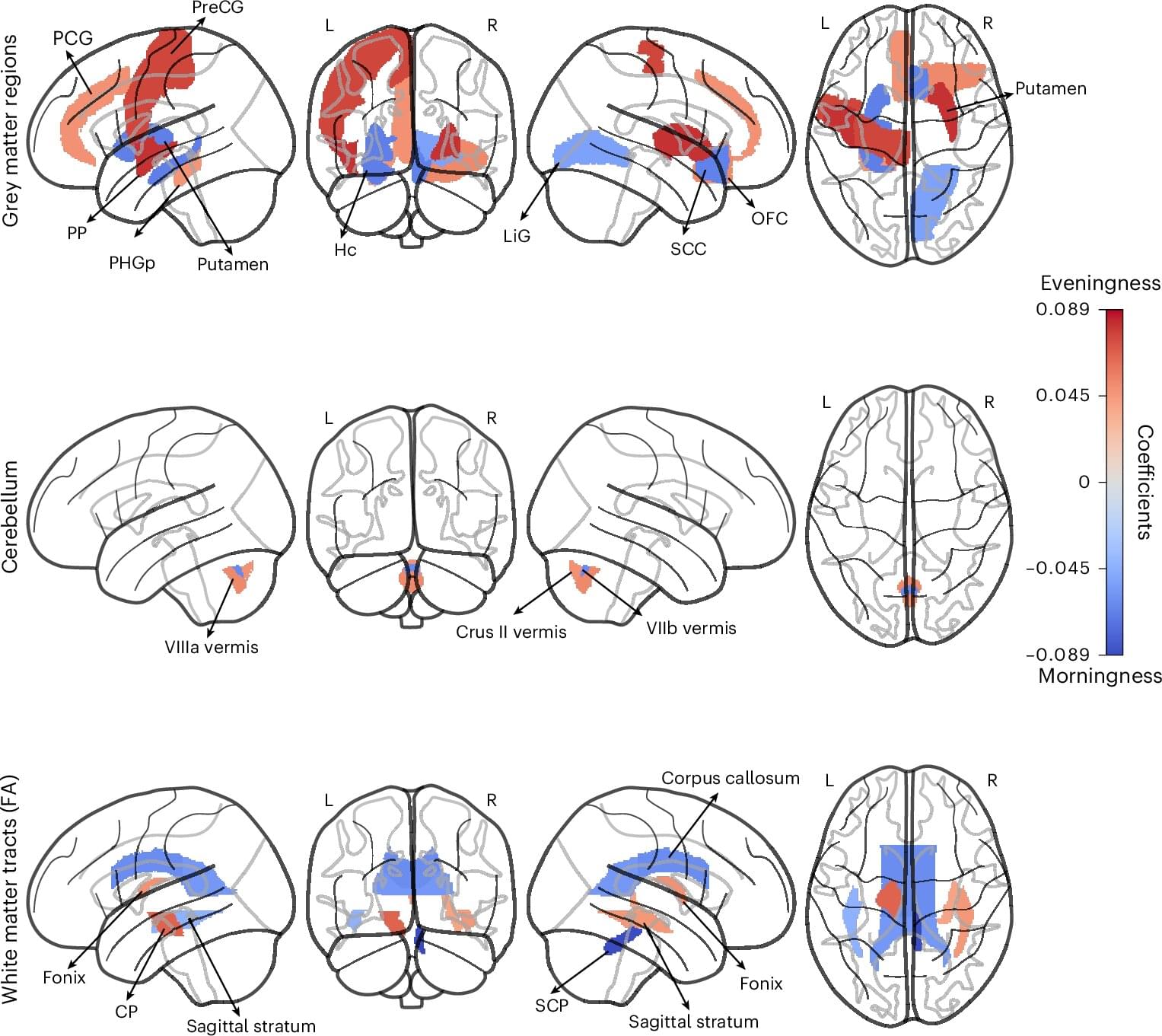Human beings exhibit marked differences in habits, lifestyles and behavioral tendencies. One of these differences, known as chronotype, is the inclination to sleep and wake up early or alternatively to sleep and wake up late.
Changes in society, such as the introduction of portable devices and video streaming services, may have also influenced people’s behavioral patterns, offering them further distractions that could occupy their evenings or late nights. Yet past studies have found that sleeping and waking up late is often linked to a higher risk of being diagnosed with mental health disorders, such as depression and anxiety disorders, as well as poorer physical health.
Understanding the neurobiological underpinnings of humans’ chronotypes, as well as the possible implications of being a so-called “morning person” or “night owl,” could thus be beneficial. Specifically, it could inform the development of lifestyle interventions or medical treatments designed to promote healthy sleeping patterns.
